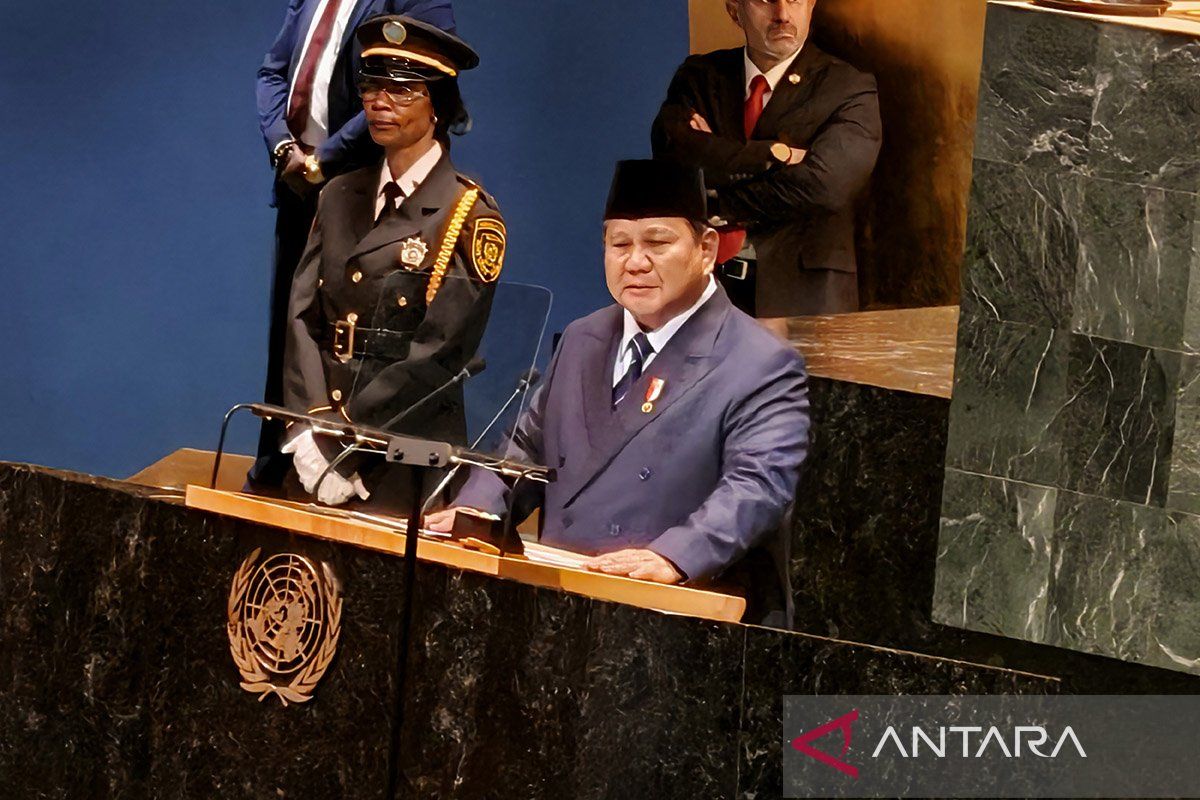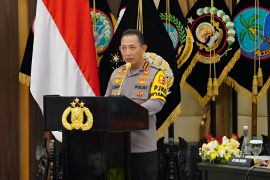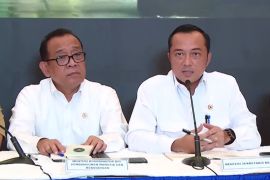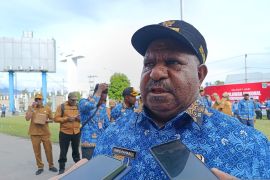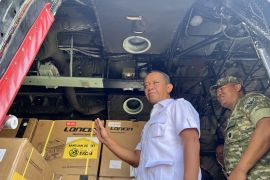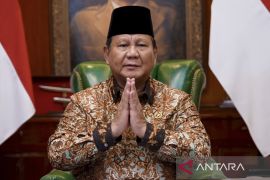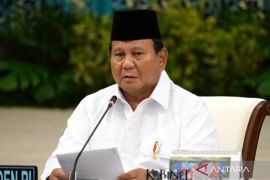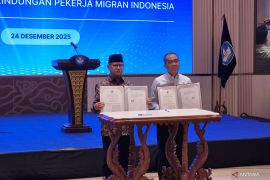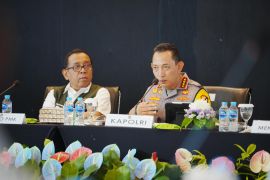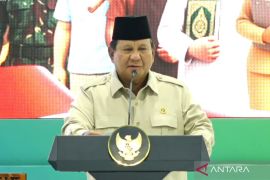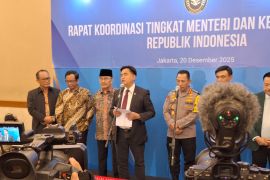The mounting pressure should serve as a wake-up call for lawmakers to rebuild public trust through meaningful action,Jakarta (ANTARA) - Ten months into the presidency of Prabowo Subianto, Indonesia witnessed a wave of protests that escalated into nationwide unrest in late August 2025, just days after the country celebrated its 80th anniversary.
Many believe the uprising largely stemmed from mounting public distrust toward their deputies at the House of Representatives (DPR)—an outcry that reached its boiling point following reports of excessive salaries and allowances enjoyed by lawmakers.
During the turmoil, Jakarta saw thousands of people from different walks of life channeling their anger and frustration at the Parliament Complex in Senayan, with many attempting to break through its gates and attack the site directly.
The escalation prompted not only the National Police (Polri) but also the Indonesian National Armed Forces (TNI) to deploy personnel to restore order and secure the complex.
The forces remained stationed even after tensions began to subside.
These events vividly illustrated how the parliament and its headquarters stand as vital symbols of the nation’s commitment to democracy.
Finance Minister Purbaya Yudhi Sadewa—who replaced seasoned treasurer Sri Mulyani, one of the main targets of public dissent during the riot—observed that the protests sweeping Indonesia at the time were the culmination of prolonged economic pressures the people had endured.
Similarly, DPR Speaker Puan Maharani stated during a parliamentary session that the unrest largely stemmed from four pressing issues affecting the public, three of which were linked to economic disparities.
Such disparities are closely tied to the contested total take-home pay of DPR members—comprising a basic salary and a range of allowances—which reportedly could reach up to Rp230 million (nearly US$14,000) per month, or more than 50 times the income of most ordinary citizens.
This commotion was exacerbated by several legislators making statements the public deemed insensitive or inappropriate. As a result, some MPs had their homes ransacked by rioters.
This turn of events once again proved that while the DPR represents a pillar of Indonesia’s commitment to the trias politica concept of democracy, it can easily trigger chaos through unpopular decisions or the absence of prudence among its members.
The DPR must reflect on its role and the expectations placed upon it—drawing lessons from the nation’s first year under Prabowo and using this milestone to renew its commitment to public service.
Despite the backlash it continues to face amid mounting pressure, the DPR has been striving to represent the people through its legislative, budgeting, and supervisory functions.
Related news: DPR announces six points of resolution to respond to people's demands
Legislative Works
On October 6, 2025, two weeks ahead of his administration’s first anniversary, President Prabowo signed Law No. 16 of 2025 regarding State-Owned Enterprises (SOEs). As the 16th law he approved, the legislation formalized the transformation of the SOEs Ministry into an agency-level body called the SOEs Regulatory Agency (BP BUMN).
The new law is an amendment to Law No. 1 of 2025 on SOEs—the first enacted under Prabowo’s presidency—which laid the foundation for the establishment of the Danantara Investment Management Agency.
Also serving as Indonesia’s sovereign wealth fund, Danantara was created through the shared commitment of the government and parliament to revamp SOE governance, ensuring these enterprises optimize state resources for the nation’s benefit rather than group or personal interests.
The government-DPR alignment was also reflected in President Prabowo’s signing of Law No. 2 of 2025 concerning Mineral and Coal Mining, designed to expand public access to mine management through cooperatives to spur economic growth.
The subsequent Law No. 3 of 2025 on the TNI, however, stirred public debate due to provisions expanding the list of non-military institutions in which active TNI officers may serve and broadening the military’s authority in non-war operations. Such clauses triggered fears of reviving the military’s dual function, reminiscent of the New Order era under Soeharto.
In response, the government, DPR, and TNI assured the public that the new law would not compromise civil supremacy—a principle Indonesia has upheld since the Reform Era. TNI Commander General Agus Subiyanto even ordered active officers to resign from positions in institutions not listed under the law.
President Prabowo also approved the Draft Law on the Third Amendment to Law Number 8 of 2019 on Hajj and Umrah. Through this revision, the DPR supported the president’s policy of transforming the Hajj Organizing Agency (BP Haji) into the Ministry of Hajj and Umrah, with Mochammad Irfan Yusuf appointed minister and Dahnil Anzar Simanjuntak as deputy minister.
The move is part of a broader plan to relieve the Religious Affairs Ministry of Hajj and Umrah management duties starting in 2026.
Moreover, the DPR has been working to finalize the revision of the Criminal Procedure Code (KUHAP), continuing its efforts during the ongoing recess period, from October 3 to November 3, by gathering public feedback.
Related news: Indonesian govt urges KUHAP revision to meet human rights standards
Toward transformation
From time to time, the Constitutional Court (MK) responds to public calls for judicial reviews of enacted laws, accommodating public aspirations while respecting the DPR’s legislative authority. In several verdicts, the MK reminded lawmakers to uphold meaningful public participation in every legislative process.
In line with this, Speaker Maharani has ensured that every parliamentary hearing reflects the people’s voices, reinforcing the DPR’s mandate as the true representative of the public.
The August riots culminated with citizens compiling their demands into the so-called “17+8 People’s Demand,” outlining 17 immediate and eight long-term demands circulating widely on social media.
One of the long-term demands, expected by August 31 next year, calls for a comprehensive overhaul to “clean up” the parliament.
In response, DPR Deputy Speaker Sufmi Dasco Ahmad assured that the House would act on the demand, with Speaker Maharani leading the initiative. The DPR has already shelved a controversial plan to provide Rp50 million in monthly housing allowances for lawmakers, addressing one of the short-term demands.
Furthermore, the DPR has demonstrated its commitment to fast-tracking the Asset Forfeiture Bill and the Police Bill by designating them as legislative priorities, as demanded by the public.
Law Minister Supratman Andi Agtas noted that both the government and the DPR share the view that advancing the Asset Forfeiture Bill is crucial to combating corruption. He added that quicker results could be achieved if the DPR takes legislative initiative.
Meanwhile, the Police Bill is expected to advance reforms within the police force. The government’s plan to establish a Police Reform Committee complements this legislative effort, aiming to produce recommendations that will shape the bill’s revisions.
Coordinating Minister for Law, Human Rights, Immigration, and Corrections Yusril Ihza Mahendra stressed that President Prabowo—together with the DPR—holds the authority to determine the future structure and status of the police. He noted that the 1945 Constitution mandates such matters be decided through the formal legislative process.
All things considered, these demands and developments over the past year highlight the DPR’s central role in Indonesia’s democratic framework—and show that, despite its flaws, the people still regard it as a key platform to push for reform and accountability.
As the Prabowo administration marks its first year, the DPR must reflect not only on its achievements but also on its challenges.
The mounting pressure should serve as a wake-up call for lawmakers to rebuild public trust through meaningful action, ensuring the DPR remains a credible force in shaping and overseeing national policies.
Related news: DPR guards people’s rights, not to weaken government
Related news: Prabowo, DPR hold final say on future of Indonesian National Police
Editor: M Razi Rahman
Copyright © ANTARA 2025
